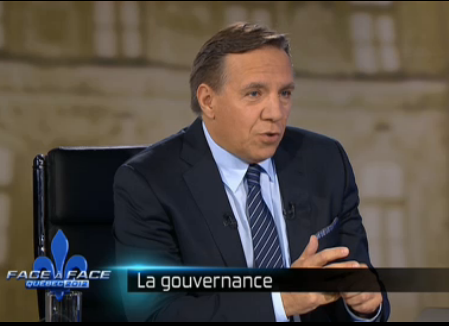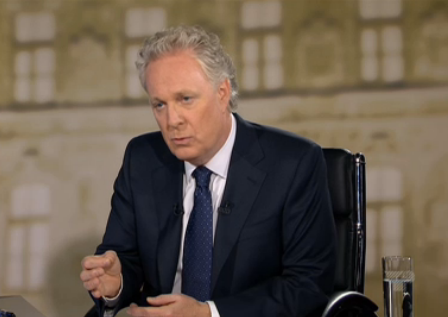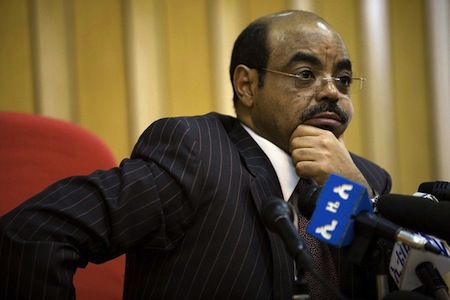I’ll be live-blogging tonight’s hourlong debate — the second in a series of three one-on-one debates — between Québec premier Jean Charest, the leader of the centrist, federalist Parti libéral du Québec (Liberal Party, or PLQ) and François Legault, leader of the newly formed, sort-of maybe center-right Coalition avenir Québec (CAQ).![]()
![]()
Sunday night featured a four-way debate and last night featured a raucous one-on-one between Charest and Pauline Marois, the leader of the leftist, sovereigntist Parti québécois (PQ). Tomorrow’s final debate will feature Marois and Legault, and Wednesday will bring showcase Marois and Legault.
Given Charest’s feisty, aggressive tone against Marois last night, I expect to see the same against Legault, who himself is a former PQ minister. Legault left the PQ to form the CAQ late last year, and I would expect Charest to make the argument that Legault is a closet sovereigntist and that the CAQ has been too vague about its plans for government. I expect you’ll also see Charest attack Legault for cuts made to Québec’s health care system — Legault once served as minister for health and social services under PQ premier Bernard Landry from 2001 to 2003.
Québec’s voters go to polls on September 4 to choose 125 members of Québec’s Assemblée nationale.
Read Suffragio’s prior coverage of the Québécois election here.
Well, it was another exciting debate and the last debate for Charest.
Charest managed to come across as a little less aggressive tonight, but perhaps a little more effective — he could point (and he did!) to Legault’s past experience in government and contrast it with the (unreliable?) positions Legault has taken as the leader of the CAQ.
Legault seemed more effective, perhaps, than he did on Sunday night, but seemed less sure throughout the night. He’s not as good a debater as Charest.
I wonder if Legault’s strong defense of French and Bill 101 at the end of the debate will leave a bad taste in anglophone voters’ mouths — he’ll need those if the CAQ is to win the election.
All in all, I think Charest did a strong job defending his government and an even stronger job attacking the CAQ’s platform (or the slipperiness of the platform vis-a-vis Legault’s record).
Full live-blog after the jump.
* * * * Continue reading Live-blogging the Québec debates: Charest v. Legault


